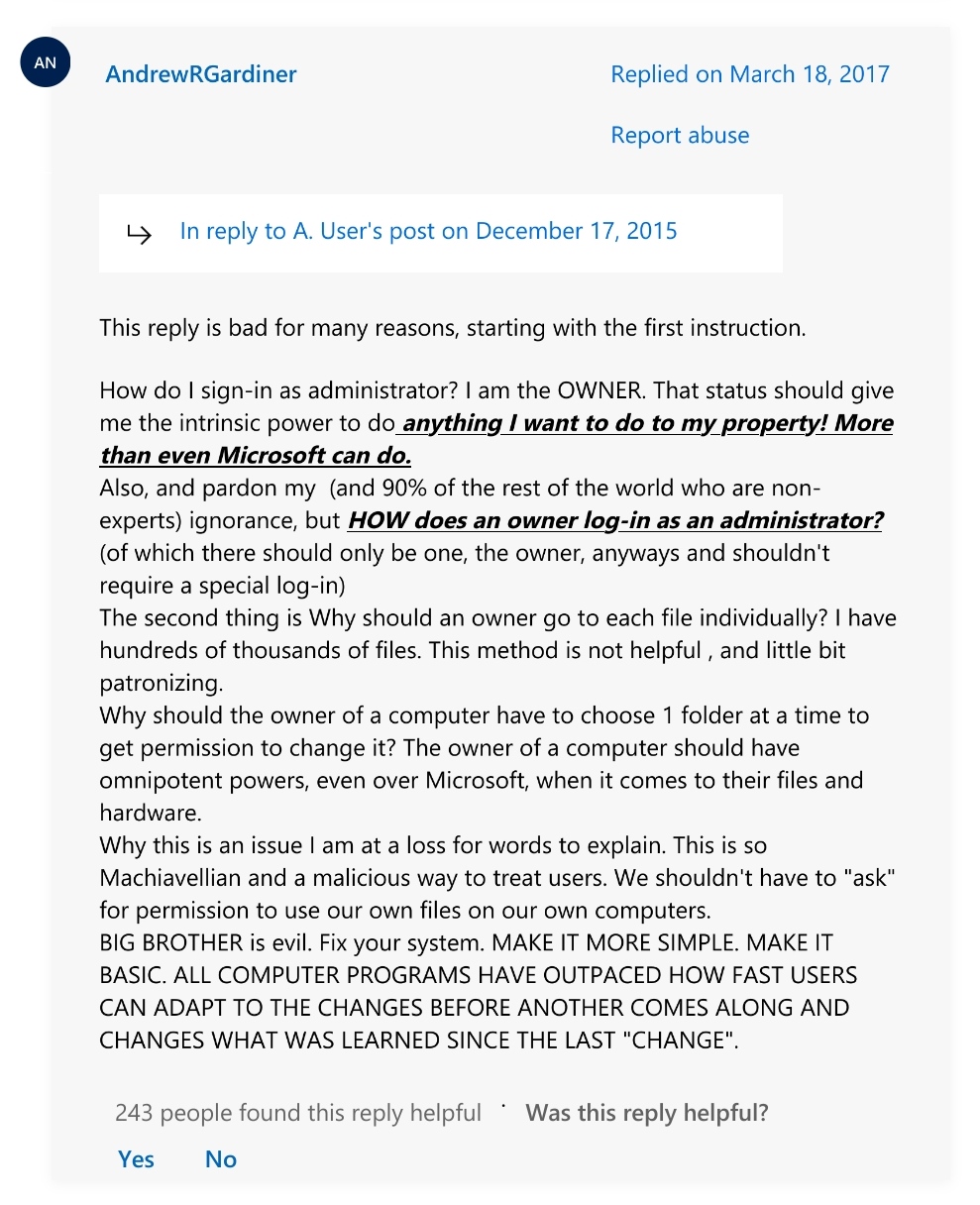this post was submitted on 08 Jul 2024
500 points (97.0% liked)
Programmer Humor
32559 readers
573 users here now
Post funny things about programming here! (Or just rant about your favourite programming language.)
Rules:
- Posts must be relevant to programming, programmers, or computer science.
- No NSFW content.
- Jokes must be in good taste. No hate speech, bigotry, etc.
founded 5 years ago
MODERATORS
you are viewing a single comment's thread
view the rest of the comments
view the rest of the comments

My man just reinvented free software.
Eh? On Linux you also aren't supposed to log in as root, and you also have to individually set file permissions.
This issue is unrelated to windows, it's a safety feature that all modern desktop OSes have
Yes, but on Linux, if I am root, I am God. I do whatever the fuck I want with my machine, for good, evil or stupidity. That's the poster's point. It seems like Windows doesn't allow you to do this, or at least not easily. So I guess people who want to have absolute control over their computer shouldn't be using Windows, I guess.
I think windows is a pretty good middle ground. Yes it's annoying that you might need to install a 3rd party tool to give you a right click menu option to take ownership of any file/folder, but at least you can do that and it's easy. And for normies that don't have Linux-fu they'll get into a lot less trouble than if you give them Linux.
MacOS on the other hand, if there's something Apple decided users are too dumb to be allowed to do (which it turns out, is a lot of stuff), then you just can't do it, period.
It’s quite common to login as admin on windows though (in home setups), you’ll still have to authenticate for administrative tasks (the UAC popups).
The issue here is mostly that the user has probably upgraded and windows changed their account, resulting in the files being owned by their old account.
In linux, that’s fixable with ‘sudo chmod -R’
In Windows, there’s no built-in way, you need the take ownership script.